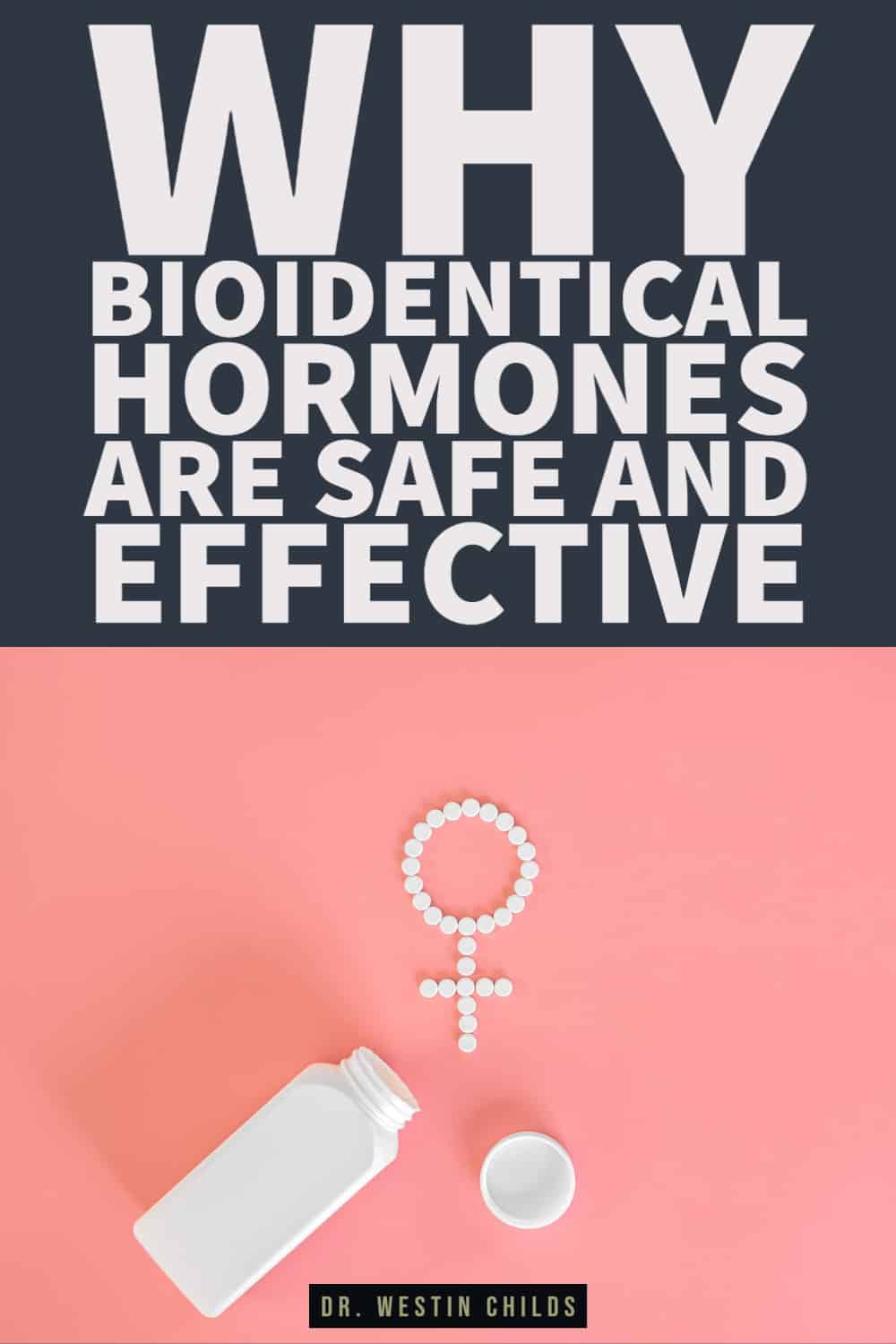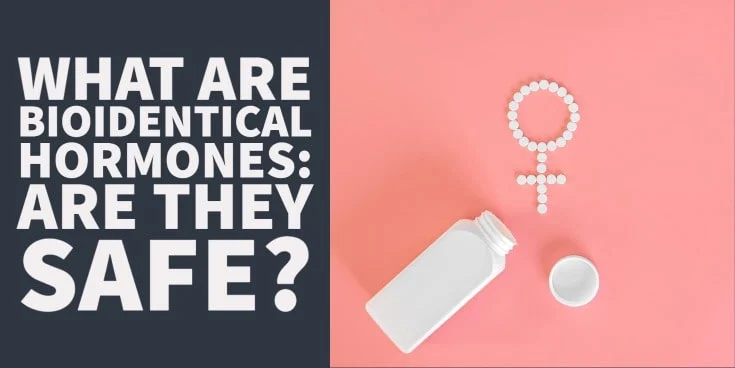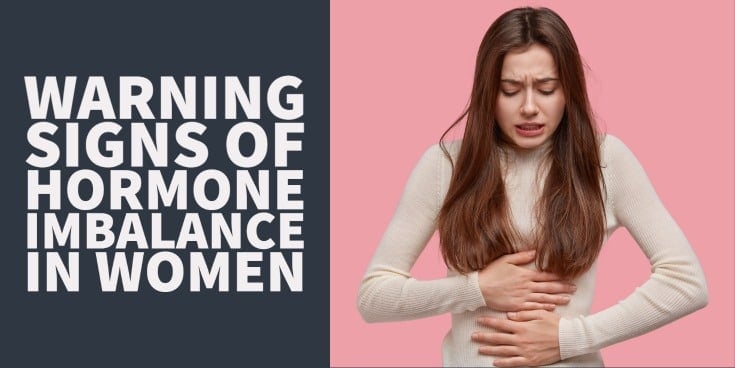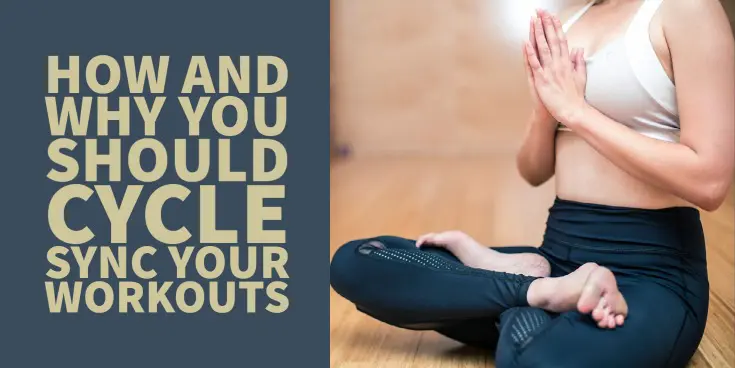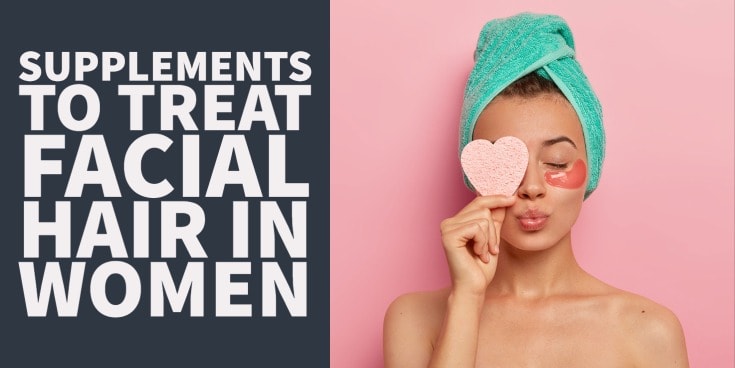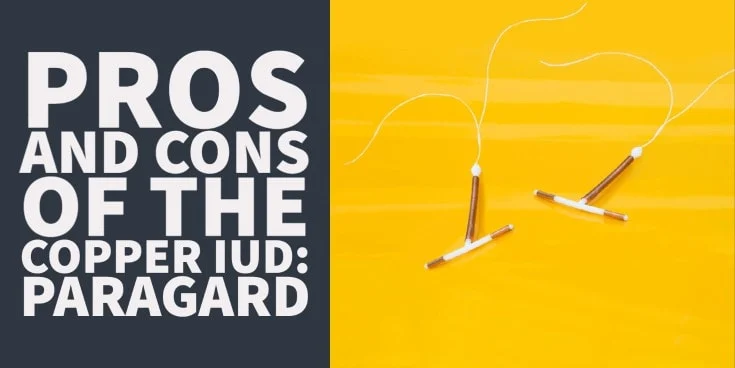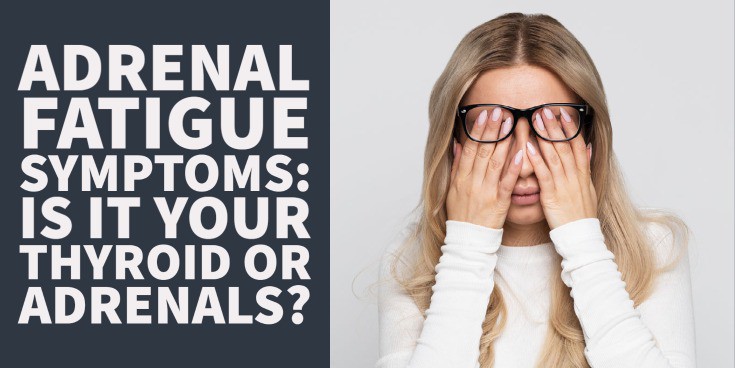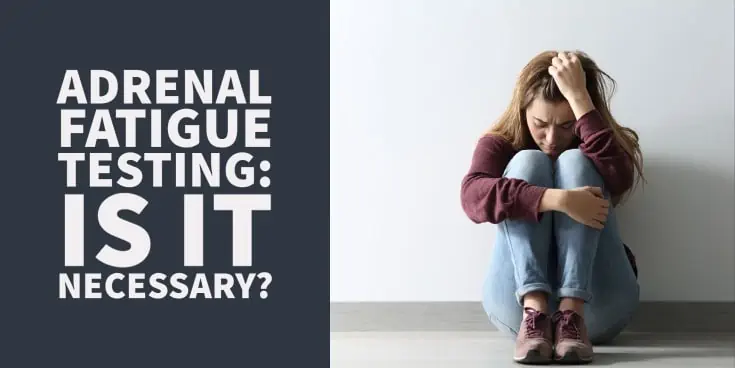Why Hormone And Hormone Management is so Confusing
Do you feel a bit confused about what types of hormones you should or shouldn’t be using?
If so, this article is for you.
Second only to the thyroid, I find so much misinformation out there on the internet as it relates to hormone management and hormone replacement therapy.
It’s frustrating for me when I see false information ranking at the top of search engines and I can only imagine how confusing it must be for a patient when they see this.
Well, today, we are going to draw back the curtain and explain everything you need to know about hormones and hormone replacement therapy.
But first, why is there so much confusion regarding this area of medicine?
The answer is simple.
There’s been a push from pharmaceutical companies to obfuscate and blur the line between bioidentical hormones and hormones which are manufactured by pharmaceutical companies.
It’s in their best interest to do this because they don’t want you to use the cheaper and more effective medications that they don’t make money off of.
Today you are going to learn…
- What bioidentical hormones are and how they are different from pharmaceutical hormones
- Examples of bioidentical hormones so you aren’t confused
- Whether or not bioidentical hormones are safe (and why we don’t really need studies to ‘prove’ it)
- The difference between birth control and bioidentical hormones
- And much more
Let’s jump in:
What Does the Term Bioidentical Hormone Actually Mean?
Let’s talk first about the definition of bioidentical hormones and synthetic hormones produced by pharmaceutical companies.
Bioidentical hormones are hormones that look exactly like the same hormones that your own body produces naturally.
The term bioidentical hormone is often used interchangeably with the term body identical hormone, but both terms are used to describe the same thing.
Think about it this way:
Your body produces a number of important hormones such as testosterone, estradiol (the most potent estrogen), progesterone, and thyroid hormone.
Unfortunately, there are medical conditions that cause your body to secrete less hormone than you would if you were otherwise healthy.
The treatment for these conditions is to simply take the same hormone that your body would produce naturally, and give it to you in a pill or capsule form.
Makes sense, right?
Well, that’s not what we do (at least not all of the time).
Instead, doctors typically prescribe medications that look SIMILAR to the same hormones your own body produces naturally in their place.
While these hormones may look similar and activate the same hormone receptors on your cells, they are NOT the same thing.
These hormones are what I refer to as Frankenstein hormones.
And the chances are high that you’ve probably taken them in the past.
How do I know? Because birth control pills fit into this category.
We will talk more about those later, for now, let’s stay on the topic of bioidentical hormones versus hormones created by pharmaceutical companies.
Why would pharmaceutical companies want you to use their Frankenstein hormones over bioidentical hormones that your own body produces naturally?
It all comes down to money.
Because bioidentical hormones are considered biological compounds, they cannot be patented by pharmaceutical companies.
Because they can’t patent the compound, there’s not much money to be made.
To get around this they take a bioidentical hormone and slightly alter it. Just enough so that they can patent the compound and then call it something “new”.
But why does your body need something “new” when it’s been designed (either intelligently or from evolution) to function optimally with the hormones that it secretes naturally?
It doesn’t, but, again, pharmaceutical companies can’t make money off of bioidentical hormones so they just don’t push them.
And to make matters worse, they do their best to blur the line between these two types of hormones.
They refer to both bioidentical hormones and their own man-made hormones as “hormones” in medical studies.
They use the term “testosterone” to include both bioidentical testosterone as well as their man-made testosterone.
They use the term “progesterone” to refer to both bioidentical progesterone as well as progestogens and progestins which are their man-made versions.
So a study may conclude that “progesterone” is unsafe for certain women but the study only looked at their synthetic version.
See the problem?
These studies don’t bring clarity, they bring confusion.
And well-meaning doctors read these studies and then assume, wrongly I might add, that hormones are somehow unsafe (a topic that we will discuss briefly).
What you need to understand here is that bioidentical hormones are exact replicas of the hormones that your own body produces.
And these hormones should NOT be confused with the various synthetic, man-made Frankenstein hormones that pharmaceutical companies produce.
They are NOT the same, they have DIFFERENT safety profiles, and your body does NOT process them the same way.
Examples of Bioidentical Hormones
Now that you understand what bioidentical hormones are, let’s talk about some examples.
Once you understand what to look for you will then also understand which hormones you should avoid.
It turns out that there are bio-identical hormones available to use as a treatment for most medical conditions that are associated with corresponding low hormone levels.
Unfortunately, these bioidentical hormones are rarely ever used, and instead, pharmaceutical medications are often prescribed in their place.
Here are some examples of bioidentical hormones:
- Thyroid hormones (both T3 and T4) – ALL prescription medications are considered bioidentical including levothyroxine, Synthroid, Cytomel, and liothyronine. If you are taking thyroid medication then rest assured that you are using a bioidentical version. There’s a difference between synthetic and natural, though, which we will talk about next. The most active thyroid hormones (T3 and T4) require a prescription to get. T2 thyroid hormone is available in supplement form but is not as biologically active as T3 or T4.
- Progesterone – If you want to make sure you are actually using bioidentical progesterone then you need to make sure that the active ingredient in your medication is Progesterone USP (USP stands for United States Pharmacopeia). The only prescription medication which contains bioidentical progesterone not created by a compounding pharmacy is Prometrium. Prometrium contains bioidentical progesterone in capsule form which can be taken as a pill. The good news is that bioidentical progesterone is available over the counter usually as a cream. Bioidentical should NOT be confused with pharmaceutical versions of progesterone called progestins and progestogens.
- Testosterone – Many testosterones are bioidentical but several are not. Oddly enough, doctors do prescribe bioidentical versions of testosterone for men. Women generally only get bioidentical testosterone if they are getting their prescription from a compounding pharmacy. As a man, look for testosterone cypionate, Androgel (testosterone), and avoid all other versions such as methyltestosterone (Testred). Even though testosterone is incredibly helpful for women as well, doctors tend to avoid prescribing it because there are no FDA-approved preparations. This is obviously crazy, though, because women, just like men, can suffer from low testosterone. If you are a woman, I would recommend checking this list to make sure you don’t have symptoms of low testosterone.
- Estrogens – There is no hormone called estrogen in the body. Instead, estrogen is used to refer to a class of hormones that all impact the estrogen receptor. Bioidentical versions of estrogen include medications that contain estradiol, estrone, and estriol. Bioidentical estrogen prescriptions are known as Biest (combined estradiol and estriol), Triest (combined estradiol, estriol, and estrone), 17-beta estradiol (E2), Estrone sulfate (E1), Estropipate (E1), and Estriol (E3). ALL other prescriptions are NOT bioidentical. These non-bioidentical versions include Ethinyl estradiol (Loestrin), esterified estrogens (PremPro, Estratab), conjugated equine estrogens (Premarin, PremPro), and Dienestrol (vaginal cream). If you are a woman ensuring that you are using bioidentical hormone is incredibly important! Like progesterone, you can get estriol cream over the counter but you will need a prescription medication for estradiol and estrone.
If you are using a prescription medication to treat any type of hormone imbalance make sure you check to see what you are actually taking!
You will most likely be surprised to know that the version you are taking is probably NOT bioidentical.
The good news is that there are plenty of options to use in place of the man-made Frankenstein hormone that you may be taking.
The Difference Between Synthetic and Natural
While we are on the topic of bioidentical hormones, we should also spend some time talking about the difference between synthetic hormones and natural hormones.
Most people automatically make the assumption that any hormone which is “natural” is automatically better than one that is “synthetic”.
But what you may fail to realize is that you can have a bioidentical hormone that is synthetic and a non-bioidentical hormone that is natural.
In other words, the term natural or synthetic shouldn’t really play a role in which hormone you are using.
Instead, whether or not it is bioidentical should always take precedence over the source of that hormone and whether or not it is “natural” or “synthetic”.
The term natural and synthetic only refers to the SOURCE of that hormone.
“Synthetic” hormones, also referred to as artificial hormones, are created in a laboratory.
These are manufactured and designed using chemical processes that result in a target compound.
This target compound can either be bioidentical or not. The term synthetic doesn’t automatically mean that the hormone created is one way or the other.
Take Synthroid or Estrace (1), as an example. Both of these compounds are synthetic in that they were manufactured in a laboratory, but they are still bioidentical because they are exact copies of the hormones that your body produces naturally.
Other synthetic hormones that are bioidentical include Humulin (2) (bioidentical insulin), and Cortisone (3) (bioidentical cortisol).
Even though these hormones are SYNTHETIC they are still preferred over other medications because they are bioidentical.
“Natural” hormones are usually derived from a natural source such as plants, animals, horses, etc.
But just because a medication is natural doesn’t mean it’s preferred over a synthetic version.
Take, for instance, the prescription medication Premarin.
Premarin is “natural” because it is taken from the urine of pregnant mares (horses) but it is NOT bioidentical.
Even though the source is natural, the actual estrogens found in horse urine look nothing like the estrogens that your own body produces naturally (4).
The terms natural and synthetic also mean different things to different people.
In the world of thyroid management, the medication known as NDT is often referred to as “natural” because the name literally stands for Natural Desiccated Thyroid.
But this medication is derived from the thyroid gland of pigs.
It’s natural in the sense that it’s not created in a laboratory, but it’s not natural in the sense that a human produced it naturally.
The bottom line?
Don’t focus too much on whether or not your medication is natural or synthetic. Instead, focus on whether or not it is bioidentical as this is much more important.
Are Bio-identical Hormones Safe?
Another confusing aspect of bioidentical hormone use is their safety profile.
Doctors, especially those that are not really educated on the topic, will try to tell you to avoid bioidentical hormones because they aren’t safe or because they haven’t been proven to be safe.
But does that actually matter?
Why would we hold such a high standard for the very same hormones that our own body produces naturally?
Why would we even assume that these hormones cause some sort of negative reaction when used compared to obviously synthetic and non-bioidentical hormones that pharmaceutical companies try to make you take?
Whether you believe in evolution or creationism, you should have faith that the body was created (or evolved) to be perfect.
Why would evolution, or a divine creator, produce a body which makes hormones that are dangerous to itself?
It obviously wouldn’t.
The standard of proving medications to be safe only stems from the production of abnormal pharmaceutical-based medications.
We have to prove that these medications are safe because they are FOREIGN to the body.
And, it turns out, many of these synthetically produced abnormal hormones and medications DO cause problems and result in increased mortality rates.
But this is NOT true of bioidentical hormones (5).
Sure, bioidentical hormones CAN be dangerous but only if used incorrectly.
The safety profile of bioidentical hormones is based on the DOSE and not the compound itself.
The dose makes the poison (6).
Put another way, too much of a good thing can be harmful.
Taking abnormally high doses of bioidentical hormones CAN cause problems.
The dose that you take refers to the amount that you take.
If you take a safe amount, a similar amount (or less) to what your body would produce in the natural and healthy state, then you don’t have anything to worry about.
But to automatically assume that these hormones are dangerous is silly.
And it’s the default position that uneducated doctors take.
Can there be problems with the use of bioidentical hormones?
Absolutely.
But these issues typically stem from dosing errors or route of administration errors.
For maximum safety, it’s always best to start low and go slow.
Starting with a smaller than necessary dose and gradually increasing over time will prevent dosing errors and allow for maximum benefit from the hormones.
Birth Control Pills vs Bioidentical Hormones – What’s the difference?
Lastly, it’s worth touching upon birth control pills and how they fit into the conversation.
You may be wondering whether or not birth control pills are bioidentical given that they are frequently prescribed by doctors without a second thought.
The answer is NO.
And here is where things get interesting.
Doctors have no problem prescribing birth control pills to YOUNG women (7) (and women of all ages) which are filled with Frankenstein hormones that “look” like estrogen and progesterone.
And, by the way, these birth control pills contain doses that are so high that they completely shut down your body’s ability to produce its own estrogen and progesterone (8) as a side effect.
But then these same doctors absolutely REFUSE to prescribe bioidentical progesterone to women who are in menopause and have depleted levels of both estrogen and progesterone.
They won’t even prescribe LOW DOSE of bioidentical estrogen or progesterone for these women citing the “dangers” of such therapy.
Do you see the problem here?
These doctors are perfectly fine prescribing high doses of fake hormones to women which are associated with all sorts of risks, including an increased risk of breast cancer (9).
But won’t do the same for women who actually need it.
When it comes to birth control methods, the use of bioidentical hormones doesn’t really come up.
You can use bioidentical progesterone to help with some hormone imbalances, but you wouldn’t want to use it to prevent conception.
Instead, you can focus on other therapies, including forms of birth control such as the copper IUD or Paragard.
The copper IUD does not secrete hormones but does prevent implantation, so it is still very effective at preventing pregnancy.
The use of the copper IUD allows you to get the benefits of birth control pills without all of the negative side effects of using fake estrogen and progesterone.
Wrapping it up
Bioidentical hormones are hormones that look identical to the hormones that your own body produces naturally.
These hormones are NOT to be confused with the fake synthetic hormones that pharmaceutical companies produce.
The hormones that pharmaceutical companies produce are NOT bioidentical because they have been slightly altered.
Slight alterations to the structure of these hormones change how well they work in your body and how safe they are to use.
Bioidentical hormones are always safer to use compared to fake pharmaceutical hormones because your body was created (or evolved) to use them.
Bioidentical hormones can cause side effects, however, but these side effects are related to your dose and not the hormone itself.
MOST doctors are not educated when it comes to bioidentical hormones and may provide conflicting or flat-out wrong information if you ask them about these hormones.
Now I want to hear from you:
Are you currently using hormones right now as part of your therapy/treatments?
Do you know if your hormones are bioidentical or not?
Have you been told that bioidentical hormones are not safe?
Leave your questions, comments, or experience with these hormones below!
